Meet the cosplaying paleontologist who teaches Jurassic Park fans about dinosaurs

Many paleontologists credit Jurassic Park and its sequels for sparking an obsession with dinosaurs that set them on their career path. Yet as their education progressed, some budding scientists became disillusioned with their beloved childhood franchise because of the inaccuracies and outright dinosaur falsehoods it has propagated.
Gabriel-Philip Santos isn't one of them. The director of education at the Raymond M. Alf Museum of Paleontology in Los Angeles, Santos has carried his early love of Jurassic Park forward into his career as a paleontologist and science communicator. Santos knows there's a lot these films get wrong about dinosaurs. But he also believes they provide paleontologists a tremendous opportunity to engage with the public—even if that means clearing up some misconceptions about feathers and frog DNA. That's something Santos does regularly through Cosplay for Science, an outreach initiative he co-founded that hosts science panels at Comic Con conventions and runs pop-up museums focused on everything from Star Trek-inspired technologies to the paleontology of Pokémon.
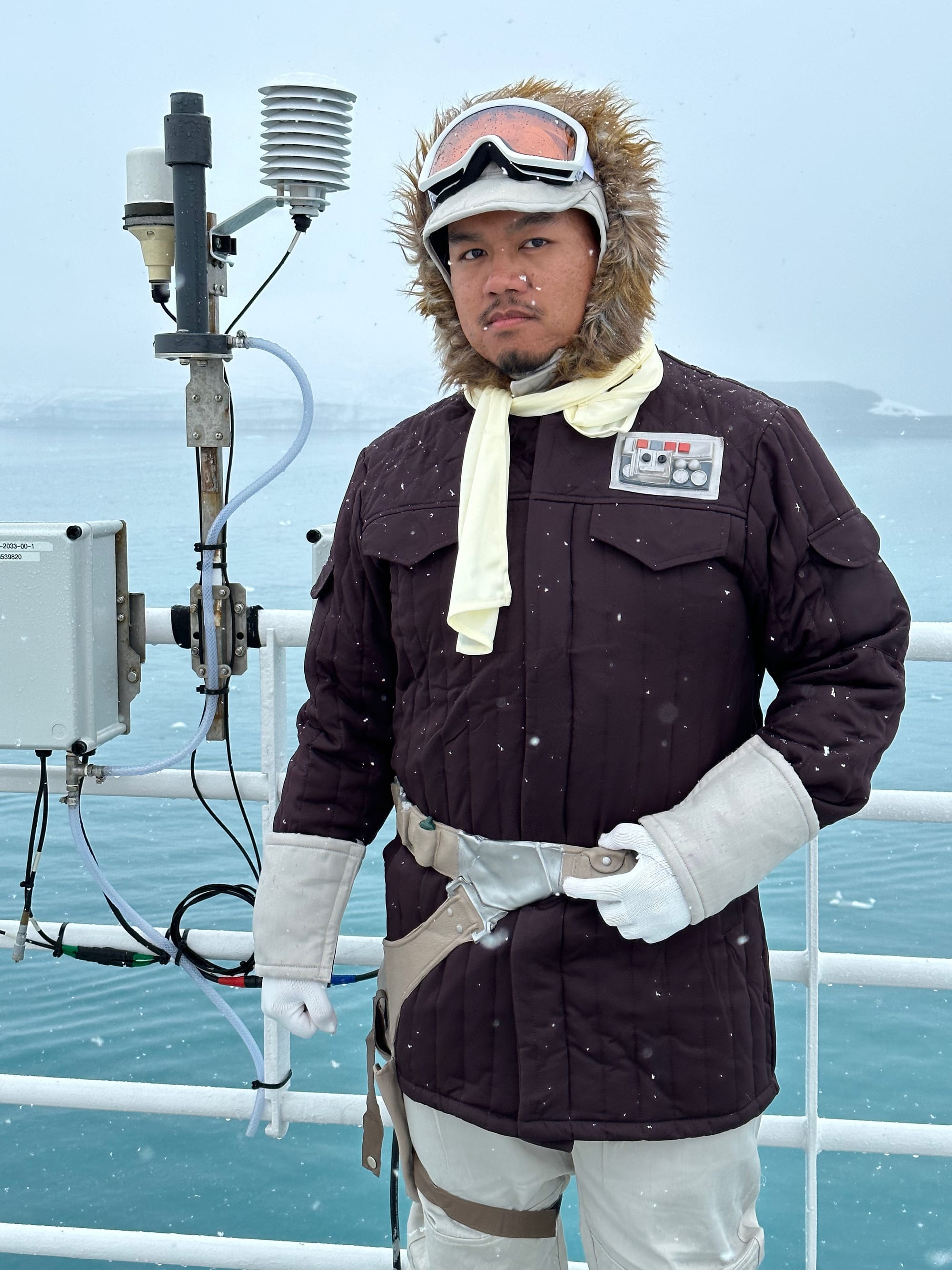
Whether or not you've paid attention to the Jurassic franchise in recent years, it's still going strong, with three Jurassic World movies released since 2015 and a fourth installment hitting theaters in July of 2025. After finally renting and starting to watch 2022's Jurassic World Dominion late last year, I called up Santos to chat about what these films get right and wrong about dinosaurs. My main takeaway? Despite all of the franchise's flaws, the Jurassic films have played an incomparable role in fueling public interest in paleontology.
Our conversation has been lightly edited for length and clarity.
Maddie Stone: To start off, can you tell me a bit about what you do and how you became interested in paleontology?
Gabriel-Philip Santos: I am currently the Director of Education at the Raymon and Alf Museum of Paleontology here in Los Angeles, California. I didn’t actually always want to be a paleontologist—my original bachelor's is in biological sciences. I was pre-med, but I was pretty unhappy with that. And then eventually, through a series of events, I rediscovered my love of museums in general, and also I rediscovered my love of storytelling, particularly science storytelling. I love to teach people and share all about the natural world. So eventually, I started volunteering at a local paleontological museum in Orange County called the Cooper Center, and then I started doing my masters in geological sciences at Cal State Fullerton. And while I was there I there did work on marine mammal evolution, particularly in this group of marine mammals called Desmostylians, which are a hippo-like ocean marine mammal. And also while doing all that I started at the Alf Museum as the collections manager, and through all of that I started doing a lot of science communication work and science education work.
My main project right now is called ‘Cosplay for Science,’ where we talk about the science of science fiction at Comic Cons and community events, things like that.
Maddie: I gather you have also been a sci-fi nerd for a long time.
Gabriel: Absolutely. I would give up paleontology for Star Wars in a second.
Maddie: So you've watched the Jurassic Park movies. From a science perspective, do you love or hate these movies, or are you somewhere in between?
Gabriel: I can separate things out, so I guess I’m in between.
I love a lot of the first two and maybe part of the third movie of Jurassic Park series. Jurassic World series, not so much. But that’s not because of the science—I wasn’t appreciative of the narrative. [Editor's note: The Jurassic Park series includes the 1993 film Jurassic Park, the 1997 sequel The Lost World, and 2001's Jurassic Park III. The Jurassic World reboot series includes three movies that have been released since 2015, and an upcoming film slated for 2025.]
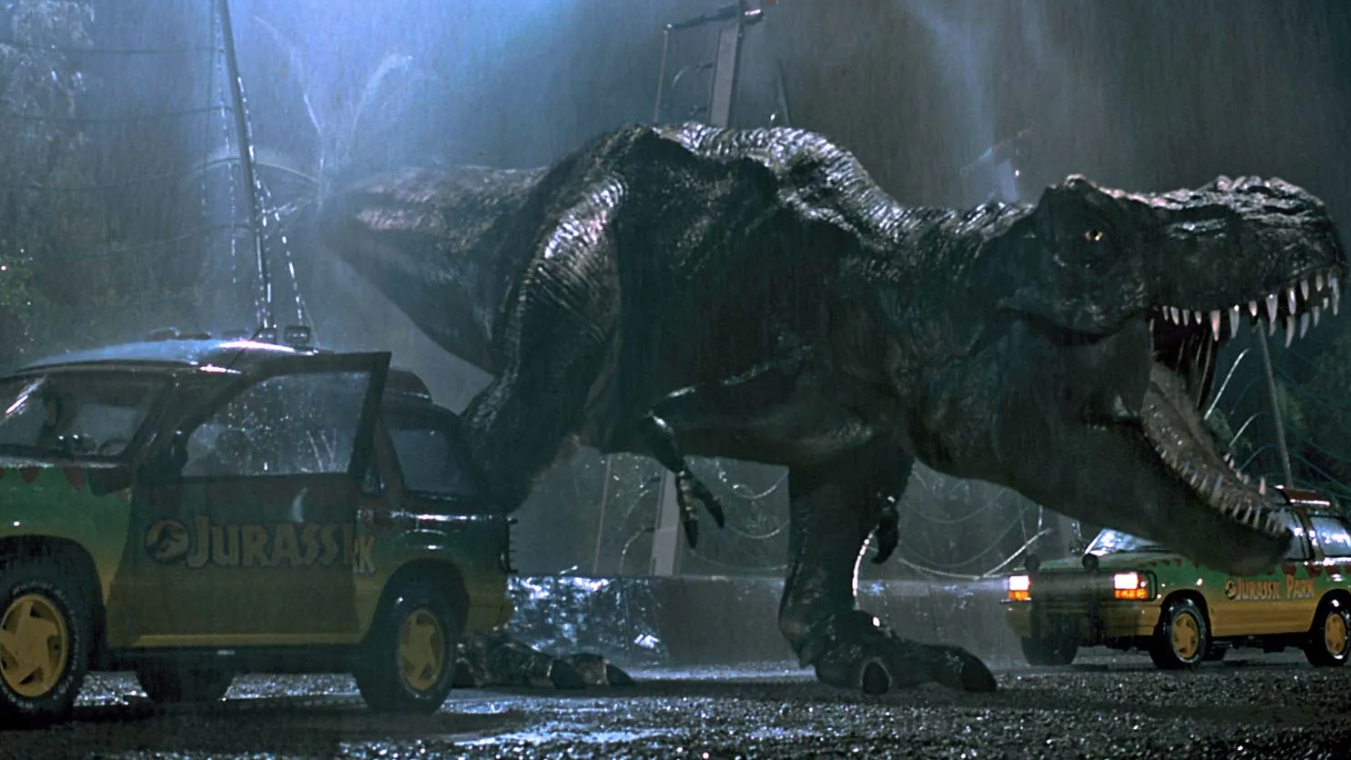
As a scientist, of course, I look at the dinosaurs and say 'those are inaccurate.’ But as a science nerd, I appreciate the movies for what they are. I appreciate the dinosaurs in there as monsters, genetic monstrosities, over dinosaurs. And I see it as a teaching opportunity. Actually, because they are inaccurate, I find it a really cool way for me to connect with audiences because of our shared interest and love of the Jurassic Park franchise.
And I don’t actually think it's the responsibility of Hollywood to be as scientifically accurate as possible. That's a whole other conversation. But I'm in the middle.
Maddie: So obviously this is a big franchise. I, like you, prefer the original movies and grew up with them. But could you give me some of your personal highlights and lowlights of how dinosaurs are depicted throughout the franchise?
Gabriel: Sure. I think starting off with some of the highlights: The way Jurassic Park, the first one in particular, brought these dinosaurs to life, in the beginning, as living breathing creatures. They did so much work to be as accurate as possible, for the first movie, within the realm of what we knew and what was available in terms of technology. They did such a great job making these extinct creatures feel real, and I think that’s the beauty of the first movie, and even the second and part of the third. And even for some of the more recent movies, they do a good job of making them feel alive at least, right? That's my favorite part of the Jurassic franchise.
I think in terms of science, I really think they do a good job making it believable. I think that's the hardest part when it comes to science fiction, is making things feel believable versus accurate. You have what, two hours for a movie to explain really difficult scientific processes, and they’re able to do it in a way that, for the audience, doesn’t necessarily raise an eyebrow. It flows so well in the narrative that you just accept it.
"That's the hardest part when it comes to science fiction, is making things feel believable versus accurate."
Now in terms of accuracy, from the first movie, we’re gonna splice the DNA with frogs? At the time I didn’t know any better at the time but as soon as I took my first genetics class in undergrad I was like, wait, what? That’s not right. [Editor's note: In Jurassic Park, dinosaurs are resurrected from extinction by fossilized fragments of their DNA with DNA from frogs. In reality, even if an embryo with this hybrid genetic profile could survive, the resulting animal wouldn't be a dinosaur.] I don’t think they do a good job explaining or even just showing the scientific process either, they just kinda state things as factual, and that’s it. As a science educator, we do our best to explain that science is not just a series of facts that’s unchanging. Science itself is a story. As we get new evidence, the story itself changes.
As a paleontologist also, do I love Dr. Grant and Dr. Sattler? Heck yes. Do they do a good job showing what paleontologists actually do? Not really.
Maddie: Would you say the way the dinosaurs look, did they look accurate in that first movie based on what we knew at the time?
Gabriel: Yes and no. They worked with the famous [paleontologist] Jack Horner to create as accurate dinosaurs as possible. But there are some things like the feather debate—that’s always talked about in the fandom. There's always folks who are like 'oh no, the feathers make the dinosaurs less scary' to which I'm like 'you've never been chased by a chicken.'
But we knew dinosaurs had a connection to birds even before that [first Jurassic] movie came out. Even when the book was written [in 1990]. But that was decided to not be incorporated, especially with the velociraptors, which also were much larger than they were supposed to be.
"Science itself is a story. As we get new evidence, the story itself changes."
They kinda did this cool thing where the brachiosaurs are coming out of the water and moving onto land. [Editor's note: Santos is referring to how, in the first film, we see brachiosaurs standing in a shallow pool of water and walking out of the water onto dry land.] It kinda follows the narrative of how we thought about sauropods. They showed, in a way, on screen, the way we’ve changed our perception of these huge dinosaurs, coming out of the water and being on land. It was really cool as an adult and a paleontologist seeing those nods to the way we perceive dinosaurs.
Maddie: So the sauropods coming out of the water: That's something paleontologists originally thought they wouldn’t be able to do, but that thinking evolved over time ?
Gabriel: Yea, because they were just so heavy they thought 'there’s no way they could support their weight on land, they need water to add to the buoyancy.' But we now know that’s not true. Their legs were perfectly adapted; their bodies were adapted to support their weight on land.
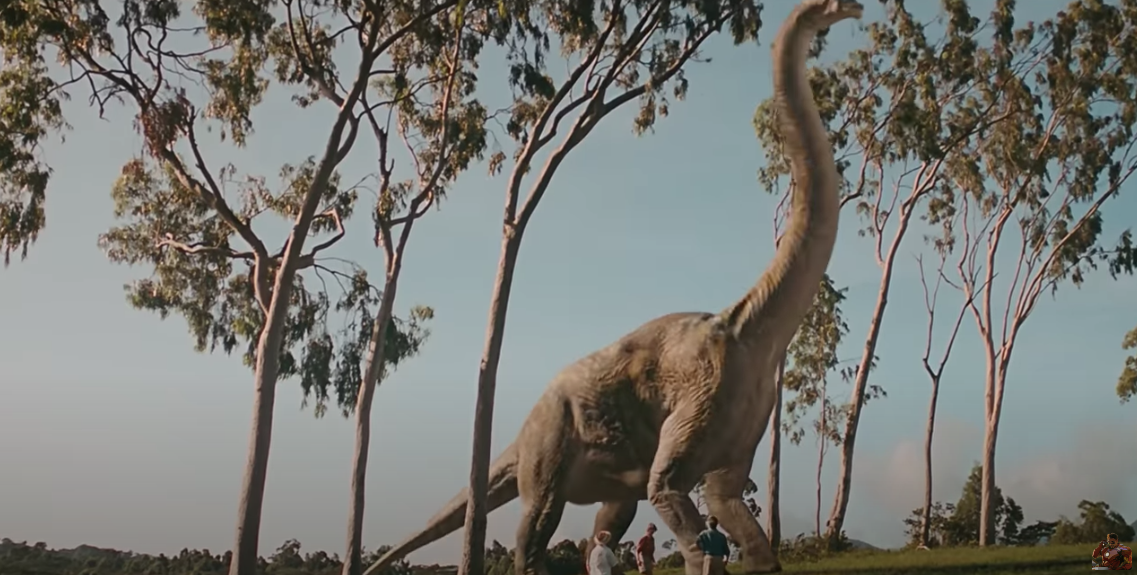
Even something like the T.rex, which is a little shrink-wrapped, which means they don't add a lot of meat to the body, you can see a lot of the bones. But even the posture of the Tyrannosaurus rex, they did such a great job. If you look at some of the older depictions of dinosaurs when paleontology was becoming a field, they were standing upright; they had their back pretty straight; their tail was dragging on the ground. But the T. rex in Jurassic Park—it’s more parallel to the ground, its tail is straight out, its head is supported above the ground. Even now, I watch that movie as a paleontologist, as an adult, and I smile in awe of how alive they feel.
Maddie: You mentioned the lack of feathered dinosaurs in Jurassic Park. Do you think that's the biggest misconception about dinosaurs propagated by this franchise? The idea that they’re featherless?
Gabriel: It's a strange debate. When we go to Comic Cons for Cosplay for Science and we talk about the science of Jurassic Park, that's something we have a conversation a lot about. There are folks who accept it: That some dinosaurs were feathered, some had a quill-like coating. It’s just accepted. There are those who are reluctant to accept the fact, because they think it makes their dinosaurs look less scary. They’re holding onto this image of dinosaurs from when we were children that’s nostalgic—this idea of these giant lizards. And then there are some who are outright in denial, just like, 'no feathers on my dinosaurs.'
So it runs the gambit of those who are more accepting but are reluctant because it affects a deep memory for them, a nostalgia, versus those who are just outright 'no.' From our experience, it depends on their level of science exposure, and the types of education they received. And even then, some folks could have the scientific education and are still like, 'nah, no feathers for me.'
"Even now, I watch that movie as a paleontologist, as an adult, and I smile in awe of how alive they feel. "
And I don’t blame them in a sense. We all have things we want to hold onto and that we remember from our childhood. For me, it goes back to education in general. We’ve taught science for a long time as this series of facts we have to memorize, and we also separate things into these subjects without talking about how they interplay with one another. And as we grow up, for those who don’t go into a scientific field, that kinda ingrains this idea that science doesn’t change, it’s this series of facts. And we don’t necessarily teach strong critical thinking skills, or the fact that again, science changes, and our opinions and perceptions change based on new evidence. We don’t teach that very well. So it's this combination of the way we teach [science] today with the popularity of pop culture, and even just our own reluctance to change.
Maddie: Is there any aspect of how dinosaurs are depicted in the franchise that has become more accurate over time or evolved in light of new scientific evidence?
Gabriel: The first one that really comes to mind is the sort of evolution of the velociraptors across the whole franchise. Not including the genetically modified ones that are super smart, that’s a whole other science fiction story. Just the raptors in general.
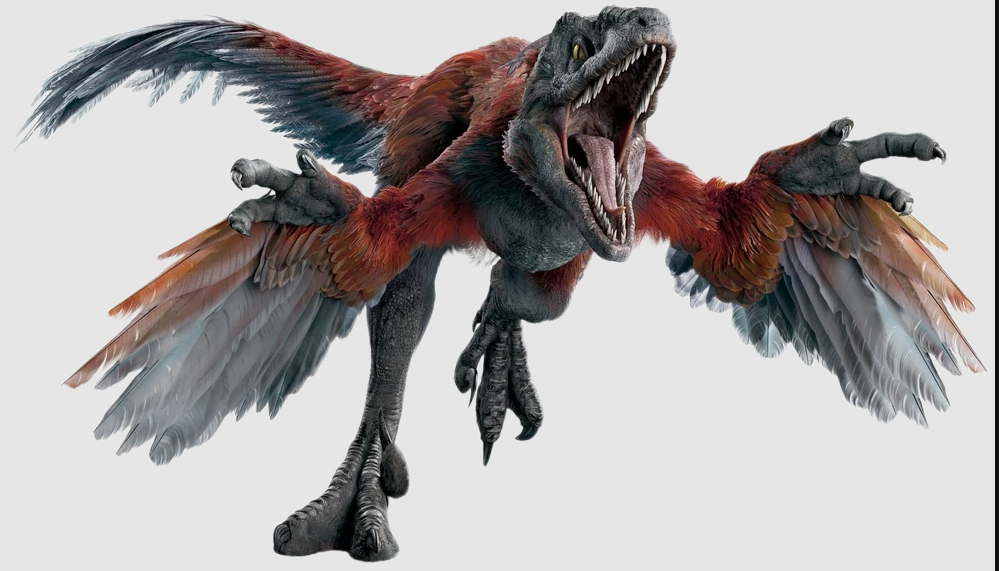
From the very first movie, we depict them as smart. They work together, they’re calculating, intelligent hunters, which I thought was super cool. They’re not depicting them as mindless killers. While it makes them scarier, I really love that. As we go through time, we’ve seen the way that raptors have changed; their different features from being really feathered and having almost wing-like things on their arms and the way their hands are no longer the praying mantis type versus the folded wing type. You can see that [evolution] with the last movie and the introduction of the "Pyroraptor". That’s probably the most accurate of the raptors we’ve seen in the Jurassic franchise.
Maddie: That's the feathered one, right?
Gabriel: Yea, that's the feathered one that somehow can swim in ice. At least it looks more accurate. Behavior-wise, let’s not touch that subject.
Maddie: Does it strike you as plausible that raptors could have been more intelligent?
Gabriel: I'm not too up to date on a lot of the velociraptor research. But some hypothesized that they were pack hunters. And having packs requires the ability to communicate with each other in order to hunt effectively. We see that today in pack hunters that are mammals. And so, we can’t just make these assumptions that they were dumb just because of the size of their brain. They were perfectly evolved and adapted for their environment. Intelligence, however we define that, I don't think we can make assumptions.
And overall, with dinosaur behavior, we just can’t know. We can look at proxies today and make hypotheses. But overall, when it comes to behavior, even with the little evidence we have, that’s a bit where our imagination mingles with the science. With the velociraptor, we have some evidence to make that hypothesis, and it’s fun to think of them as these really smart hunters.
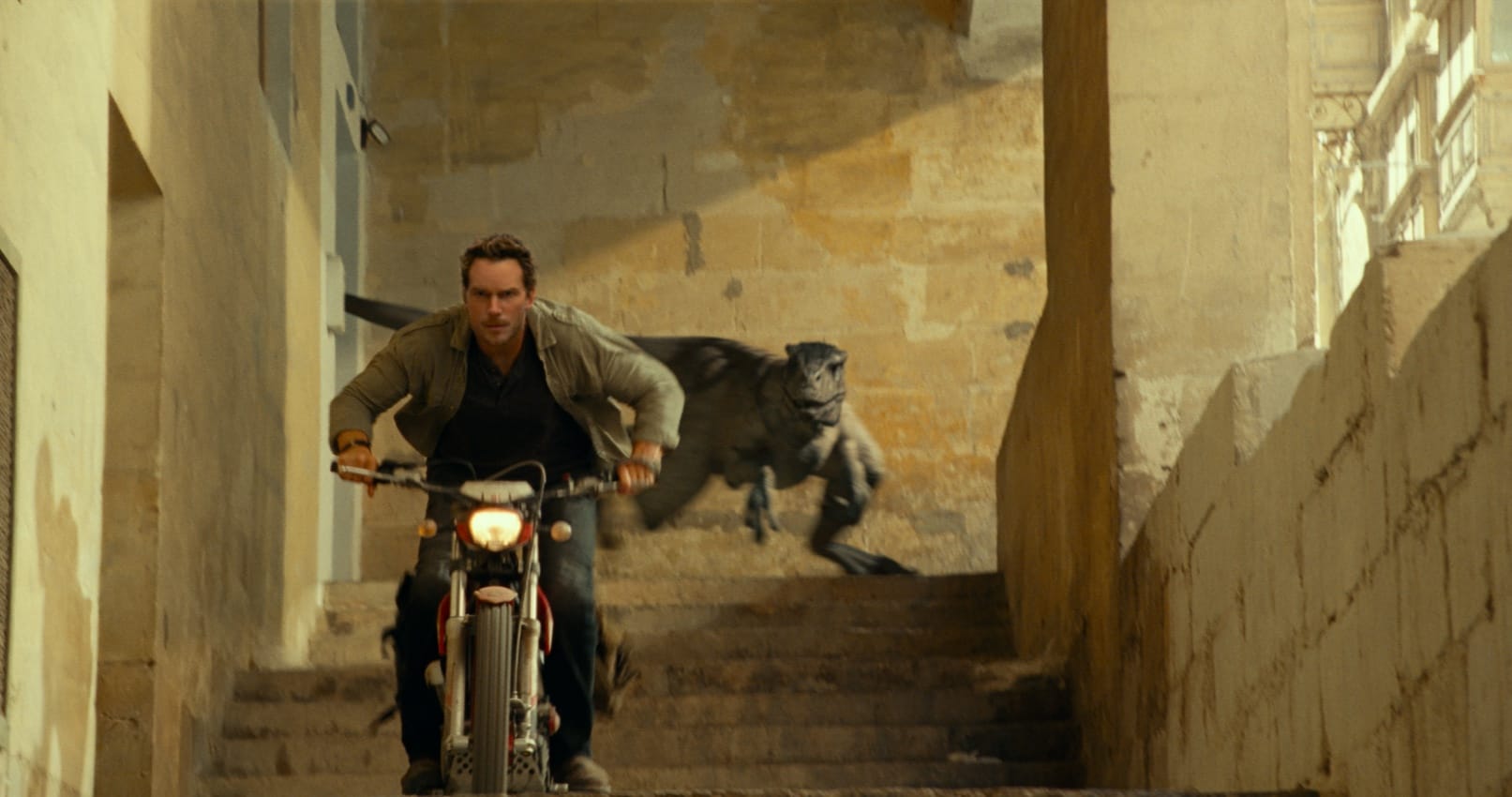
For me as a science educator and storyteller, I think that’s ok sometimes, to let our imaginations have fun with these extinct creatures. We have to find the balance, for sure. Extraordinary claims require extraordinary evidence. But when it comes to extinct creatures, sometimes our imaginations can lead us to brand-new discoveries.
Maddie: Let’s talk about Jurassic World Dominion. This was the only Jurassic movie I hadn’t seen before I reached out to you, so I rented it on Amazon over the weekend. I'm about an hour in. I have to say that for me, the new movies don’t have the same luster as the old ones, so my expectations weren’t high going in.
But then, what I did think was really interesting was right out the gate, they gave us a set-up that was unlike anything we’ve seen in other Jurassic movies. You have dinosaurs out in the world, wreaking havoc on ecosystems and infrastructure, almost like an invasive species. There seems to be this global ethical debate about what to do about it—what is our responsibility to these animals? And we also see some of the same challenges we have in our world today with the wildlife trade: Illegal breeding operations; pharmacuetical companies trying to exploit these animals. To me, it felt like the film was trying to use dinosaurs to make a statement about our problematic relationship with wildlife and nature more broadly.
I'm curious whether you agree, and you feel about this new direction for a Jurassic movie?
Gabriel: I definitely agree. That was one of the main themes of the movie— capitalistic practices, and the way we look at nature as a resource. Also the division of the natural world and the human world as a false dichotomy. But yea, when you introduce these creatures that have been extinct millions of years? None of their native habitats exist anymore, what’s gonna happen? And of course, there's going to be people who see them as a resource to exploit for money. Those are themes we definitely need to discuss in these movies. And I think Jurassic World does really try to lean more into the ethical discussions of those topics—of genetic engineering, invasive species, the wildlife trade. I appreciated the narratives that they were trying to bring into the movie.
"When it comes to extinct creatures, sometimes our imaginations can lead us to brand-new discoveries."
Were they executed well? Probably not. I feel like they just kinda bring in these cool themes and they don’t execute and payoff very well throughout the movie. Me and my roommates watched that movie because I was gonna be on a panel for San Diego Comic Con about the science of Jurassic World Dominion and I hadn't seen it yet. And it turned into a comedy of errors for us. While there's cool scenes, some things were just bad. It had some of the most egregious, bad science.
Maddie: Can you give an example or two?
Gabriel: They had Permian-aged extinct creatures, little dicynodonts, and dimetrodons, which were before the dinosaurs. That was just like, 'wait, where did those come from?' There weren’t mosquitos around to get blood or DNA from these creatures if that’s the thing we’re sticking with. Even then, those things are millions of years before the dinosaurs—how did you get those samples?
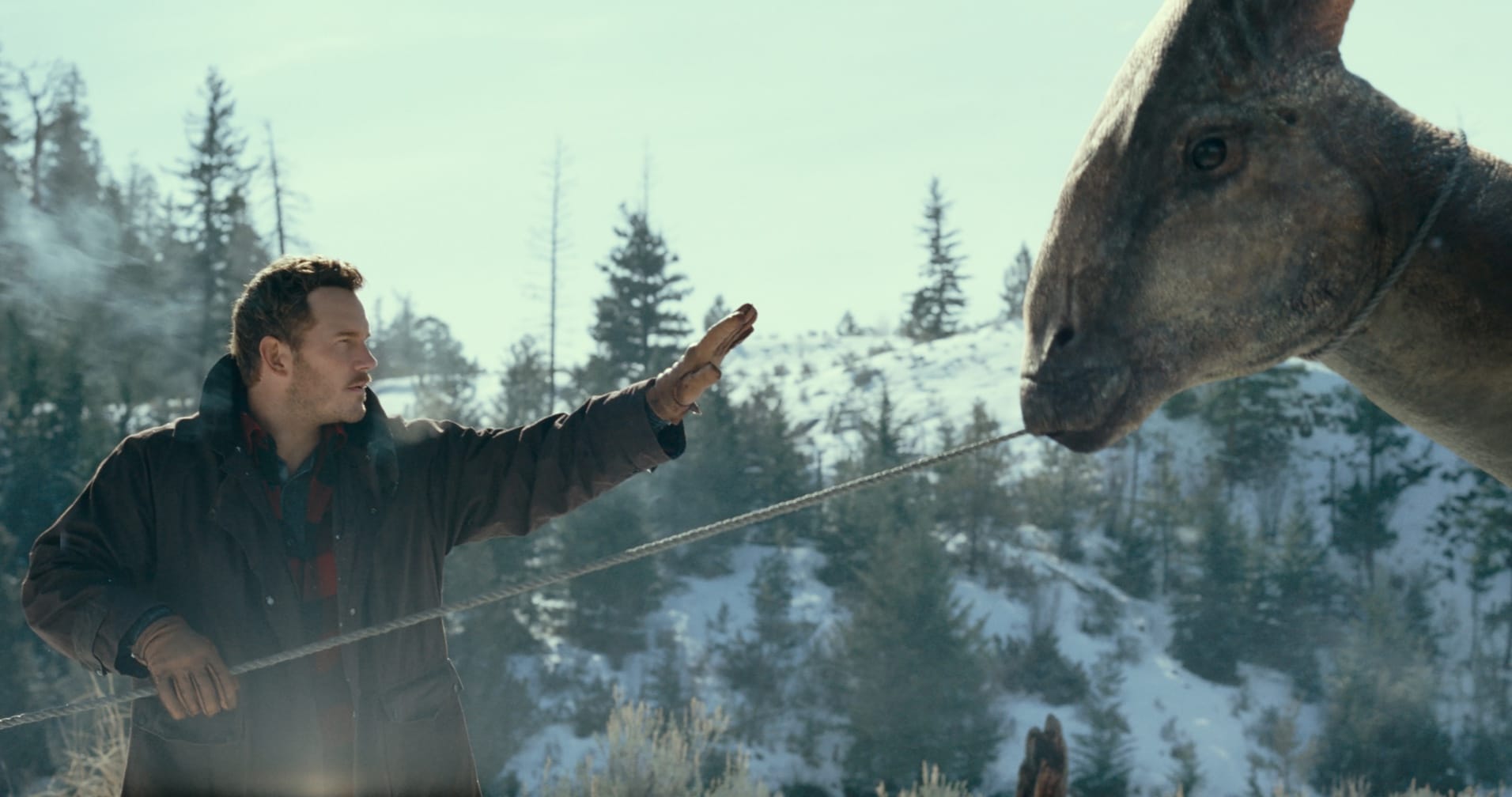
And then, this is a very silly thing, but I watch with subtitles sometimes, and in the subtitles when these creatures, which are not dinosaurs, were vocalizing, it says ‘dinosaurs vocalizing’. I couldn’t let that go.
Maddie: My background is in Earth science, and something that really jumped out at me in this movie is we see dinosaurs in all these modern ecosystems and climates, when they evolved to live in a much warmer world. Seeing a brontosaurus traipsing around in the snow really gave me some pause.
Gabriel: That wasn’t too wild. We know there were dinosaurs surviving in Antarctica. It wasn't the frozen continent at the time, but they experienced winter and freeze-thaw cycles. We know there were dinosaurs in northern North America where it was seasonal. So there is evidence of dinosaurs living in seasonality.
But was it brachiosaurus and apatosaurus? Maybe not. That was one of the ones where it was not quite accurate but it was a little believable. And again, that’s one of those cool teaching points you can bring in.
Maddie: Was there anything else that jumped out at you about this movie?
Gabriel: In Dominion, I was kinda sad that the dinosaurs weren’t the focus of the plot, beyond the first act. After that, it became about these locusts and human cloning, which I felt came a little out of left field. I was a little sad that you have this movie called Jurassic World Dominion, where the title states that it’s dinosaurs trying to take over the planet again. And they felt like background plots through the movie. If I’m going to watch a movie with bad science that involves dinosaurs, the dinosaurs better be the main point of the movie and they weren’t.
"Folks who go to Comic Con may never decide to go to a museum in their whole life. But when we bring it to them, we can broaden their horizon and change their perspective."
But I don’t try to be super negative about movies like this because I know they’re going to inspire someone else. They’re gonna pull at the imagination of some younger kid, and when they're that young, they don't care about what makes an actual good movie. All they care is they saw something that was fun. So I'm not gonna harp on it too much. It wasn't a great movie for me, but if someone loved it that's great. I'm happy to talk about it, and find teaching opportunities through the movie.
Maddie: I think that's a good segue to my last question. I feel like a recurring theme with science fiction is that even if it's not totally accurate, it has this ability to inspire the next generation to get into science or even just show what a scientist looks like. So I'm curious whether on the whole, would you say the Jurassic franchise has been a net positive or negative for paleontology?
Gabriel: Oh, it's totally a net positive. Even those who don't go into the field—it can inspire them to go to a natural history museum and learn more, to go online and read more, pursue some other interest. Maybe they started with paleontology and it led them to a different science, like geology.
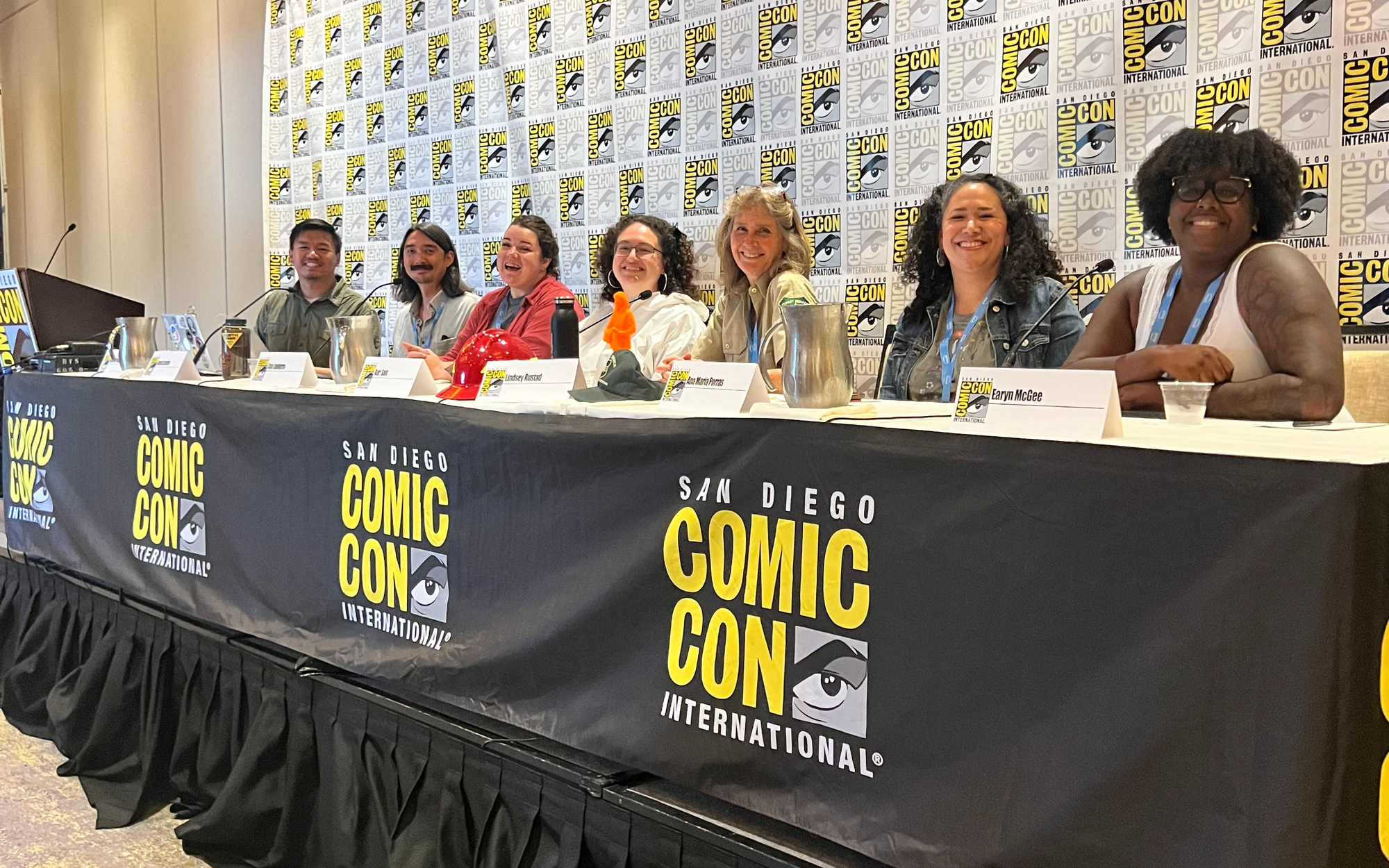
This may not be the most popular opinion, but I think these movies serve their function to tell stories and put ideas into the world. That’s their main function. Not to teach, just to inspire and put ideas. What people do with those ideas, that's their own prerogative. But at least the idea was put there. And I think overall that's why it's a net positive for paleontology. Our science, our field, was put in this public platform where we can reach so many cool audiences. I think it's awesome that we have that. Again, there's a balance of our job as the scientists, the educators, and the movie itself. I think [the filmmakers] have a duty to tell ethical stories. But overall, I think it’s our duty as scientists and science educators to use that as a jumping-off point and connect with our audiences.
I've made my career off of it. We go to Comic Con, we make pop-up museums, and we connect science to pop culture. And we’ve reached audiences I never thought we could reach. Folks who go to Comic Con may never decide to go to a museum in their whole life. But when we bring it to them, we can broaden their horizon and change their perspective. When we go into a shared world and I can bring my knowledge, we can really do some good.